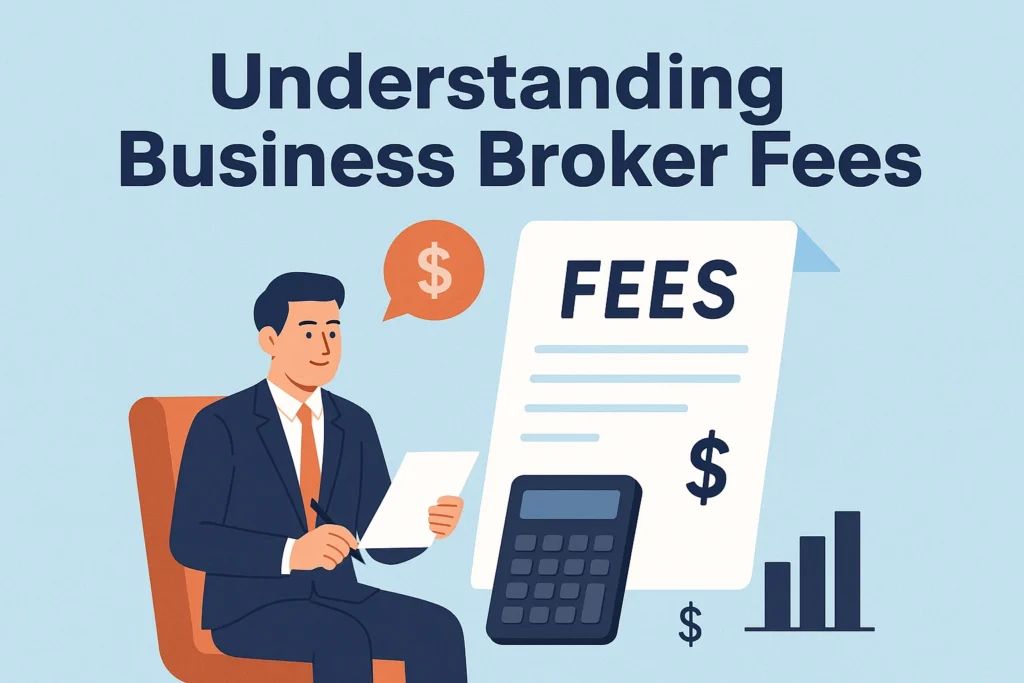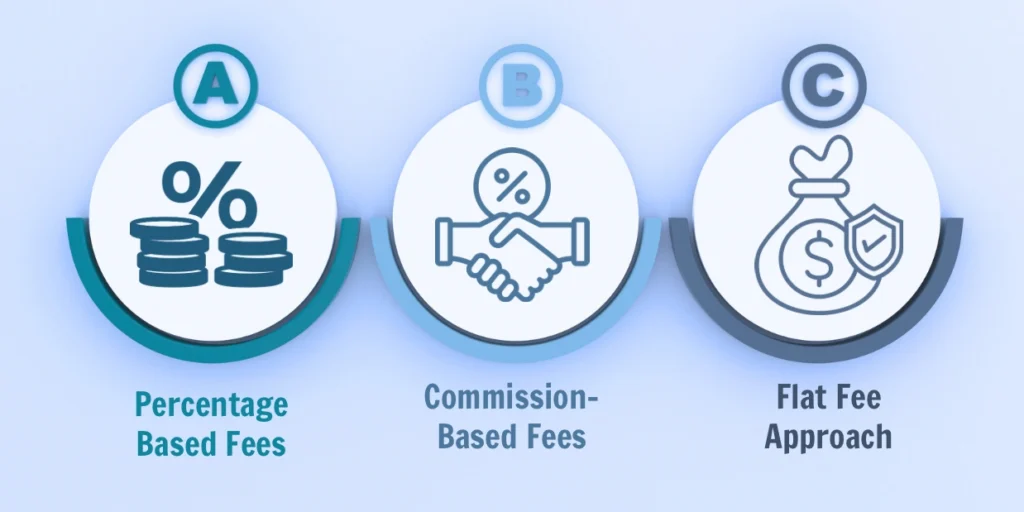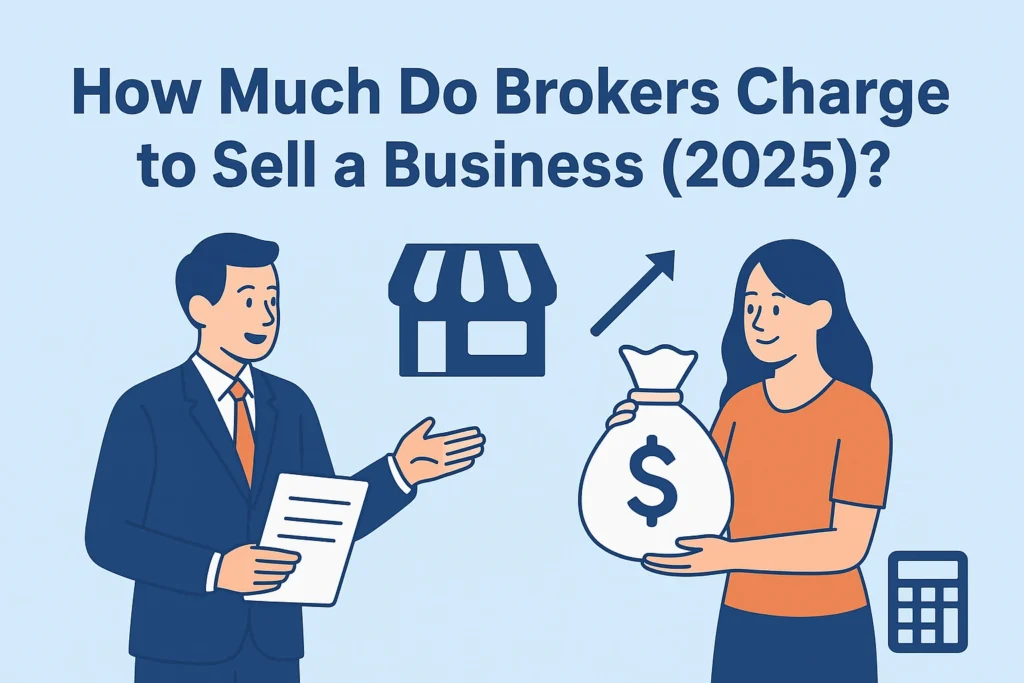Selling a business is one of the most important financial decisions a business owner can make. A good broker can save you time, connect you with serious buyers, and help you achieve a better selling price. But one question always comes up before starting the process: how much do brokers charge to sell a business?
The answer isn’t as simple as a fixed number. Broker fees depend on your business size, industry, market demand, and the broker’s own experience. In this guide, we will explore the types of fees, average commission rates, factors that influence costs, and tips to negotiate better deals. By the end, you’ll have a clear understanding of how brokers work and how to choose the best one for your needs.
Understanding Business Broker Fees
Hiring a broker means paying for their expertise, network, and time. Unlike regular salespeople, business brokers deal with complex transactions, legal paperwork, and confidentiality agreements. Their fees are structured in specific ways to cover these responsibilities.

Common Types of Broker Fees
- Upfront Fee (Retainer) – Many brokers charge an initial payment before starting work. This covers business valuation, market research, and preparing marketing materials. Depending on your location and the broker’s reputation, this can range from $1,000 to $10,000.
- Success Fee (Commission) – The most common method, where brokers take a percentage of the final sale price. This encourages them to secure the highest possible price for you.
- Minimum Fee – Some brokers set a minimum fee, ensuring they earn a set amount even if your business sells for a lower price.
Average Commission Rates
Understanding average commission rates is key when deciding whether to hire a broker. Here’s an industry-standard table:
| Business Value | Average Commission Rate |
|---|---|
| Under $1 million | 8% – 12% |
| $1 million – $5 million | 6% – 10% |
| $5 million – $10 million | 4% – 6% |
| Over $10 million | Negotiable (often under 4%) |
A smaller business usually pays a higher percentage rate, while larger deals tend to have lower percentages but higher total amounts.
Factors That Influence Broker Fees
When asking yourself how much do brokers charge to sell a business, remember that fees aren’t random. They are affected by several factors:
Business Size & Value
Higher-value businesses generally enjoy lower commission percentages, but since the sale price is large, the broker still earns more in total.
Industry Type
Some industries, like technology, healthcare, or manufacturing, attract more buyers and sell faster, which can lower fees. Niche industries might take longer, increasing costs.
Market Conditions
When the economy is strong, buyers are more active, and brokers might reduce fees. In slow markets, brokers may spend more on advertising and buyer outreach, which can increase costs.
Broker’s Experience
Experienced brokers often charge higher rates, but their expertise and negotiation skills can result in faster sales and better prices.
Flat Fee vs. Commission-Based Fees
Not all brokers work on commission. Some offer a flat fee service, which can be attractive if your business is very valuable.

When Flat Fee Works Best
If you have a straightforward sale with clear value, a flat fee ensures you know your costs upfront.
When Commission Works Best
If you want the broker highly motivated to secure a better price, a commission-based model might be more effective.
How to Negotiate Broker Fees
A good broker will be open to discussion about fees. Negotiation can help you save thousands.
Tips for Negotiating Better Rates
- Compare Multiple Brokers – Always get at least three quotes.
- Use a Sliding Scale – Agree on a lower percentage for amounts above a certain value.
- Bundle Services – Some brokers also offer legal and marketing services. Bundling them might lower your total costs.
- Highlight Your Business Strengths – If your business is in demand, you have more room to negotiate fees.
Why Hiring a Broker Can Be Worth the Cost
Some sellers try to save money by selling their business themselves. While this is possible, it often means a smaller pool of buyers and longer selling times.
Benefits of Using a Broker
- Access to Qualified Buyers – Brokers already have networks of people ready to buy.
- Professional Negotiation Skills – They know how to secure the best price.
- Confidentiality – Brokers protect sensitive information while marketing your business.
- Faster Sales – Experienced brokers reduce the time it takes to close a deal.
- Less Stress – You can focus on running your business during the process.
Tip: Websites like Techy Infinity also provide useful resources for business growth, which can make your company more appealing to buyers.
Mistakes to Avoid When Hiring a Broker
Not Checking Their Track Record
Always ask about past sales in your industry.
Ignoring Contract Details
Make sure you fully understand payment terms, marketing plans, and timelines before signing.
Focusing Only on Fees
A cheaper broker is not always better. Experience and network reach often outweigh small fee differences.
FAQs – How Much Do Brokers Charge to Sell a Business
Do brokers charge upfront fees?
Yes. This fee can cover valuations, marketing, and buyer searches. It typically ranges from $1,000 to $10,000.
What is the average broker commission?
For smaller businesses, it’s 8–12%. For larger businesses, it can drop to 4–6% or even less.
Can I sell without a broker?
Yes, but without professional help, you may get fewer offers and a lower sale price.
Are broker fees negotiable?
Absolutely. Most brokers are willing to adjust rates for high-value businesses.
How do brokers get paid?
They typically take a percentage of the final selling price after the deal closes.
Do brokers offer payment plans?
Some allow installment payments for upfront fees.
Conclusion
When it comes to how much do brokers charge to sell a business, there’s no one-size-fits-all answer. Costs vary based on your business’s value, industry, market conditions, and the broker’s expertise. While you might pay anywhere from 4% to 12% in commission, the right broker can help you get a higher selling price, attract more buyers, and close faster.
If you prepare your business well, compare multiple brokers, and negotiate terms, you can reduce costs while maximizing your profits. The fee is not just an expense — it’s an investment in getting the best outcome for your business sale.


